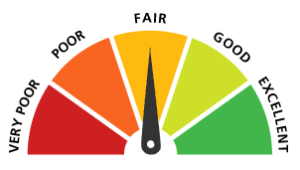Don’t Let Credit Score Myths Get in the
Way When Buying a Home

The most important piece of a person’s financial life is their credit score: Whether buying a new home, applying for a job, refinancing your home, paying off debt, or getting utility service, your credit score will drive the outcome. Do not let these credit score myths get in your way when preparing for the purchase of your next home.
Myth #1: A credit score can be destroyed by shopping for a loan: When seeking to extend credit, too many inquiries can have a negative impact on your credit score. However, when several inquiries are made by the same type of lender within a 14 day period they only count as one inquiry against your credit.
Myth #2: Credit scores of married couples are shared: A credit score can only belong to one person. Just as one person can only have one score. A married couple does not share a credit score. Their scores could have an effect on the others score.
Myth #3: Closing unused accounts improves credit scores: Unused accounts most likely contain available credit which is an important part of a credit score. Closing unused accounts removes available balances from the equation which can cause a decrease in your credit score.
Myth #4: Paying off bills is a quick way to boost your credit score. Scores do not change overnight.
Myth #5: Income and age are factors that affect your credit score. None of this plays a role in determining your score. A higher income may make it easier to pay your debt on time, but income and net worth have no impact on the credit score.
Myth #6: Your score can be hurt by credit card offers: When companies offer you their credit cards it does not have any effect on your score. Unless, you take advantage of all the offers and carelessly use all of the credit available. The important thing is to maintain a low ratio of used to available credit.
Credit Scores – Why are they so important?
You need to have a good credit score before you may apply for a residential mortgage loan. Your lender will be assessing your credit score to determine whether you present a good credit risk for them to make the home loan.
Due to the recent years of difficulty in the home mortgage markets, banks may approve your loan request only on the condition that your credit score is really good. Another benefit of a good credit score is that you may enjoy a more competitive interest rate on the loan.
If you don’t feel that your credit is in a position to apply for a loan right away, there are steps to improve your credit score before you may apply for a residential mortgage loan.
Call us for details on how to improve your credit score and get you on the quickest path to your new home. – (480) 633-7800.


